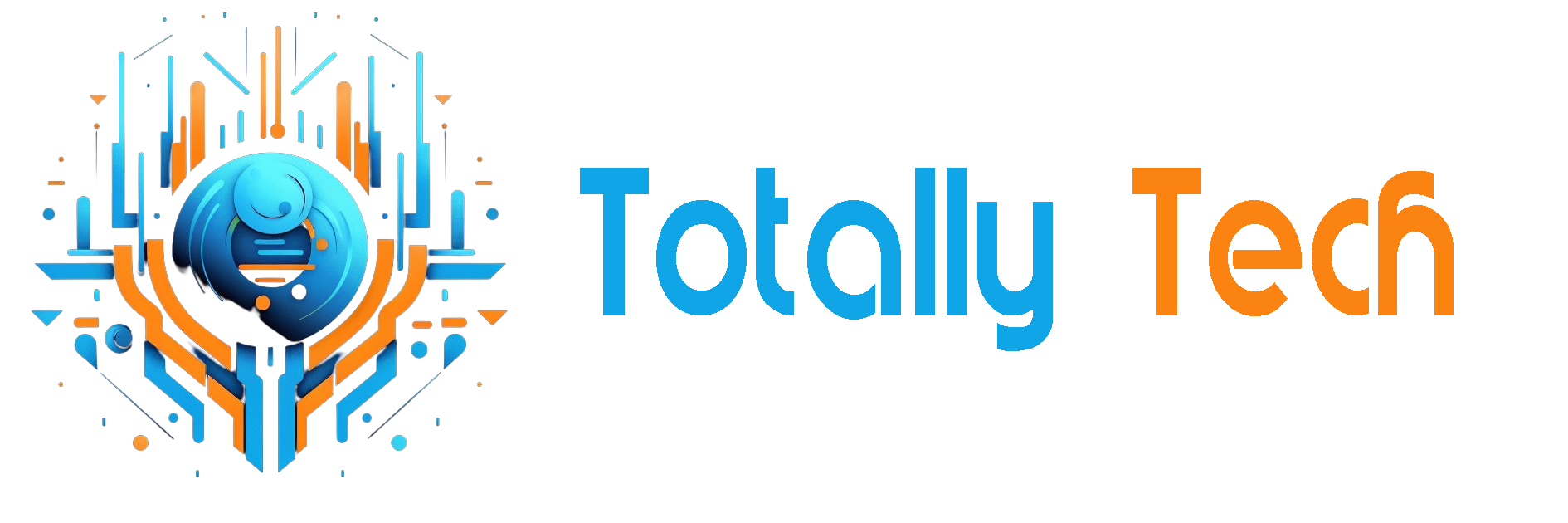
Forrest Zeisler is the CTO and Co-Founder of Jobber, a software platform designed to help small businesses streamline their operations and adapt to modern challenges. The platform addresses common pain points such as managing scheduling, invoicing, and customer expectations by providing an easy-to-use system that automates daily administrative tasks.
Forrest is Jobber’s in-house tech junkie. After graduating with an Engineering degree from the University of Alberta, Forrest spent time developing solutions that helped companies to automate their processes. When his friend Graham, who owned a painting business needed some help, Forrest saw first-hand how these types of businesses relied on outdated manual processes, costing them valuable time that could be better spent with friends, family or focusing on growing their business. That’s when Forrest’s tech obsession evolved from a passion into a purpose: building software to help people in small business be successful. 11 years later, Forrest uses his technical expertise to align the Product Management, Engineering, and Design teams within Jobber to build software that’s changing the lives of people in small business.
What inspired you to transition from engineering and machine learning into building a software solution specifically for the home service industry?
The relentless drive of small business owners has always been a source of inspiration for me. Growing up in a blue-collar city, I was surrounded by hardworking individuals in trades like plumbing, landscaping, and painting. I saw firsthand the challenges they faced daily in keeping their businesses organized and running smoothly. The home service sector is often overlooked despite its vital role in the economy, and I wanted to help change that.
In academia, you spend years working on a single problem that 10 years later might change the world. But once you’re in the business world, you’re solving new problems every day. And that was really exciting for me. I could see the impact of my work immediately, which was deeply fulfilling.
Now we’ve reached a point where my enthusiasm for machine learning has merged with my dedication to empowering home service businesses, and I couldn’t be more excited about the opportunities ahead.
Can you share the story behind Jobber’s creation and how your friend’s painting business influenced its early development?
I met my co-founder Sam Pillar while working at a coffee shop. He told me about an idea he was working on, which later became Jobber. I told Sam about a friend who worked for Graham Audenart, owner of Painters Enterprise, who was drowning in paperwork and struggling with invoicing, scheduling, and tracking important information. We met with Graham and learned that he was looking for a software solution to organize his business. It was then and there that Sam and I formed our partnership, and Graham became our first customer.
Many of Jobber’s customers have been in the same situation as Graham. It can be challenging to stay on top of the administrative tasks of running one’s own business. For Graham, we minimized his paperwork and moved his invoicing, client records, and team schedules into an online framework. Sam and I quickly realized that multiple businesses across industries could benefit from a platform like this—that was our lightbulb moment. It wasn’t just about fixing one business’ problems, it was about fixing the entire system for all home services businesses.
What were some of the biggest challenges you faced while transitioning Jobber from a concept into a thriving platform used by over 250,000 professionals today?
For business owners across industries, it can be a challenge to stay close to customer pain points as the company scales. While we have grown Jobber into a thriving business, our customers have remained our priority, and addressing their pain points is at the heart of our company. The customer has to be part of the journey at every step of the way.
That being said, to quote Henry Ford, “If I had asked people what they wanted, they would have said faster horses.” When we source feedback on a new feature, we don’t start with a blank piece of paper in front of the customer. We go off and build and come up with concepts that we bring customers for their feedback. By inviting customers into the fold, we ensure that they’re part of the process, that we’re getting it right, but at the same time we leave room for innovative thinking.
For example, when building our AI Receptionist feature, our product managers were talking to dozens of customers a week. Their calendars were packed. They would collect feedback, iterate on the product, and then go back to the customer to better understand what was working, what was not, and how they were feeling about the tool.
How does AI-powered software help home service professionals compete with outdated manual processes? Can you share examples of its practical impact?
AI is revolutionizing the home services industry, giving small businesses a competitive edge over larger companies. AI-powered technology helps save business owners time by automating tasks like billing, invoicing, and scheduling. It also provides insights as a business coach at any time of the day or night, allowing them to scale their businesses like never before.
We recently launched Jobber’s AI Receptionist in beta, which is a tool we built to respond and book appointments/jobs for customers via phone or text 24/7. It has already fielded thousands of conversations, capturing work requests and even booking new work directly into customers’ calendars. The tool is powerful because it gives service pros back their most valuable asset, their time. It allows them to focus on their families and not have to worry about answering phone calls or text messages. One customer shared that when he goes to watch his daughter play volleyball, he doesn’t need to worry about missing a call for a potential job. It’s stories like these that remind us of the positive impact AI can have on the success of small businesses.
Mixed-modality AI is a term we’re hearing more frequently. How does Jobber leverage this concept to create better tools for its users?
There’s power in mixed modality, because there’s value in voice plus screen. This is where we see our industry moving to. While voice AI could work without a screen, humans are visual beings, and the screen can enhance the voice—think about the screen share functionality on a video call. I believe when it comes to our customers’ scheduling needs, quoting, and more, they’ll be able to have a conversation with AI and leverage a screen in parallel with their voice and can see in real-time as the quote or the invoice changes per their voice direction. It’s a feature we look forward to rolling out in the future.
What role do you see AI playing in the future of blue-collar industries, and how is Jobber preparing for that future?
While AI is disrupting work processes across industries, blue-collar jobs are pretty insulated from AI taking over the human’s role—AI will never be able to unclog your toilet or take over cutting down a tree. But AI can answer the phone while you’re busy on the tools or up a ladder.
AI is transforming how small business owners operate and helping them compete with larger companies and their massive teams. One of AI’s biggest roles in blue-collar industries is automating business operations tasks like answering the phone, booking appointments, or helping example data for smarter decision making, resulting in a more efficient business. Our home service entrepreneurs are excited about how this can give them control to do more of what they want to do whether that’s working on their business or having dinner with their family every night.
Not only has automation enhanced the way blue-collar business operates—and will continue to do so—but AI will also serve as a so-called “business coach” for entrepreneurs, giving them the tools to launch and grow their small businesses in a way that wasn’t possible before. To give a practical example, customers can ask Jobber Copilot, our generative AI chatbot, about best practices in their industry to scale their business, acquire and retain customers, and more.
What does developing “copilots” for home service professionals involve, and how do they simplify the day-to-day operations of Jobber users?
We understand that being intentional in introducing our AI features can foster greater adoption among our customers. Since the industries we serve rely heavily on pen and paper to run their businesses, we must build trust with our customers, as opposed to going too big too fast.
We built Jobber Copilot from the ground up with the intent of growing it into a singular representative to provide a more agentive experience to our customers. It’s a foundation that we’re proud of and one that can’t be replicated overnight. Jobber Copilot is a complex multi-bot architecture running dozens of AIs behind the scenes. It’s leveraging 13 years of experience, data from hundreds of thousands of Small Businesses, thousands of expertly written Jobber Academy articles, podcast transcripts, and more to spot opportunities, understand trends, validate decisions, and automate processes to provide our customers with deep, rich knowledge at their fingertips to grow their businesses. We’ve built a strong foundation for our Copilot and will continue to improve it and add additional functionality for years to come.
With tools like route optimization and automated invoicing, what are the most significant operational efficiencies Jobber has brought to its users?
This answer may differ based on the user, but each customer wants to have an edge over their competitors, and they know they can have that with a tool designed specifically for their industry and unique needs. What’s important to us is that our customers want to use our technology because it addresses their challenges. A customer’s significant operational efficiency could be achieved through customer communication or by creating invoices promptly. Whatever it may be, we listen to our customers’ feedback and needs and work to address them on our platform.
As a co-founder and CTO, how has your role evolved over the past 11 years? What lessons have you learned about leadership in a rapidly growing tech company?
One of the biggest lessons I’ve learned is the importance of scaling leadership alongside the company’s growth. What works at one stage often doesn’t at another, so being adaptable and open to evolving your approach is critical. For instance, as teams expand, the way you communicate and delegate must shift. Early on, I was hands-on with technical decisions, but as we scaled, empowering other leaders and trusting their expertise became essential so I could focus on more big-picture decisions.
Another key lesson is the value of hiring and nurturing the right talent. Culture is everything in a fast-paced environment. When you invest in people—ensuring they align with the company’s values and feel supported—you create an organization that’s resilient and capable of overcoming challenges. I’ve learned that a leader’s role isn’t just about making technical or strategic decisions and fostering an environment where teams feel motivated and connected to the mission.
Finally, it’s critical to maintain clarity of vision and focus. In a high-growth company, opportunities and challenges come at you quickly, and it’s easy to get distracted. I’ve learned that staying laser-focused on the company’s core objectives while being flexible enough to adapt to the market is a balancing act, but it makes all the difference in driving sustainable growth.
Leadership isn’t about having all the answers—it’s about building a team that can collectively solve problems, innovate, and execute purposefully.
Looking ahead, what’s next for Jobber in terms of AI, features, or market expansion?
At Jobber, we’re focused on the user experience of our AI applications and making sure the technology is something that customers not only understand but want to adopt and use in their daily lives. We’ve been playing around with voice AI and believe mixed modality will be popular among our customers in the near future. Our focus has been, and always will be, on addressing our customers’ pain points, and bringing industries traditionally relying on pen-and-paper into this new technological age.
Thank you for the detailed interview, readers who wish to learn more should visit Jobber.
The post Forrest Zeisler, CTO and Co-Founder of Jobber – Interview Series appeared first on Unite.AI.



